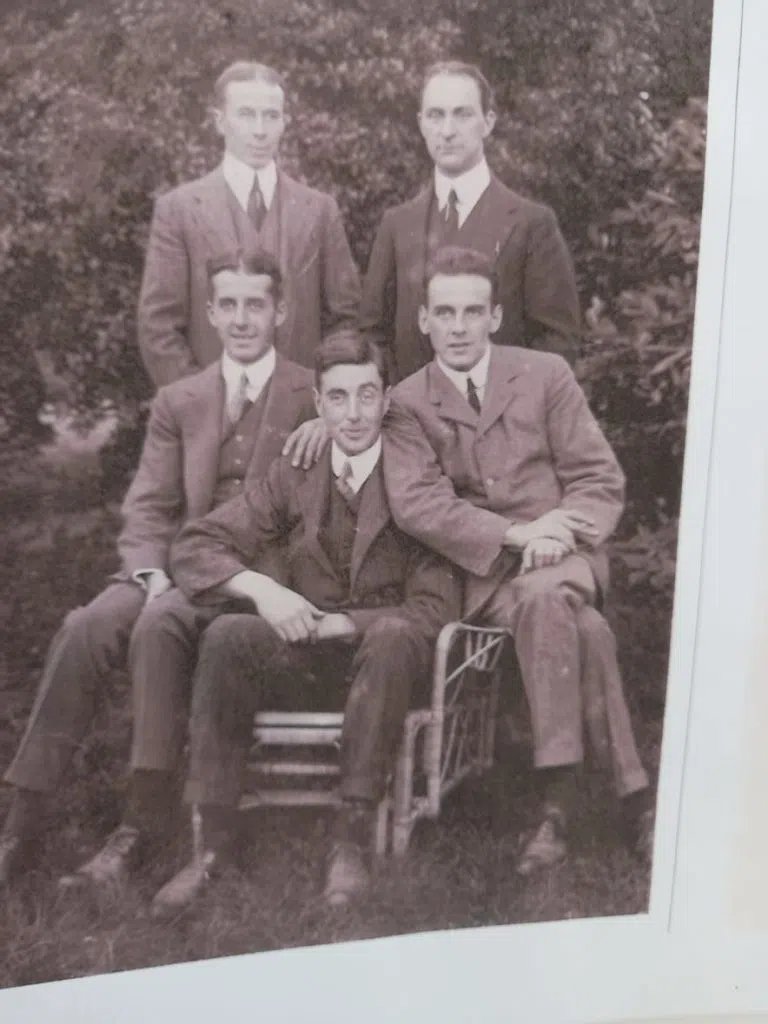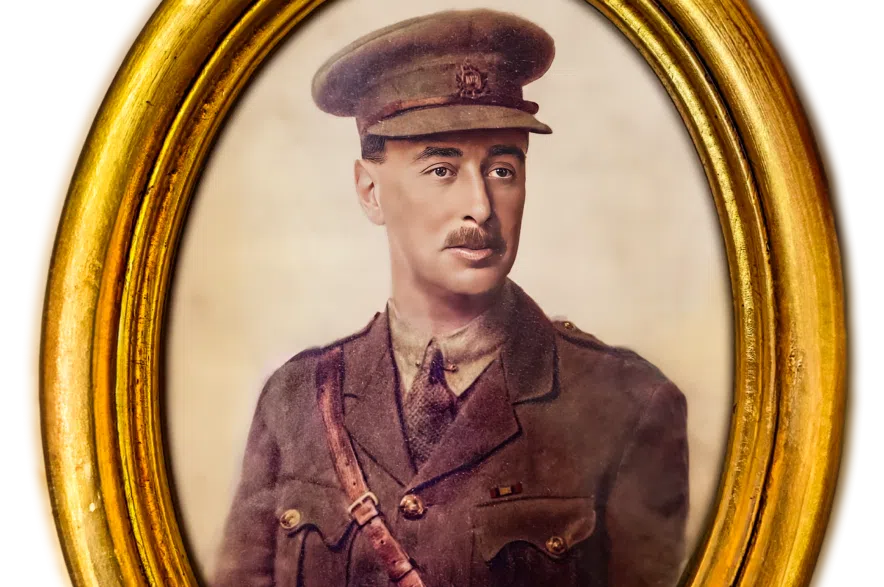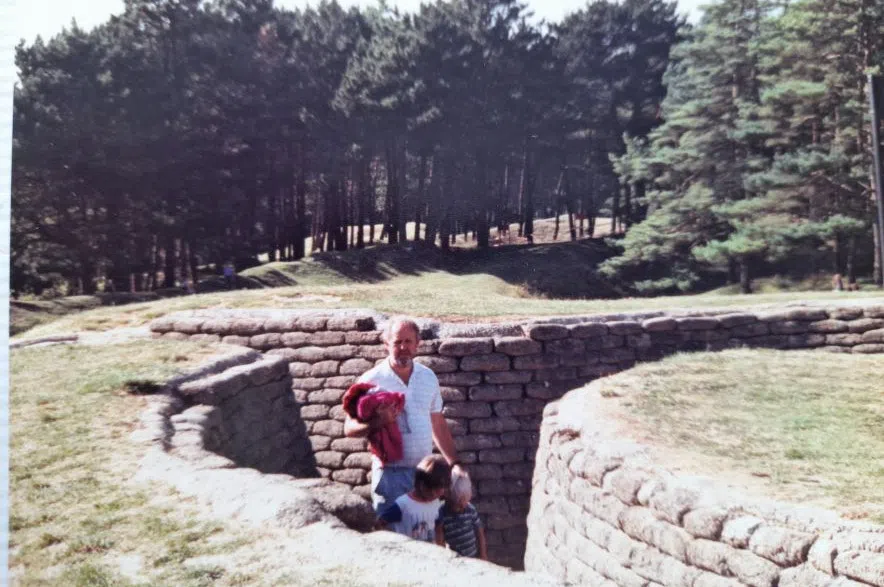Richard Hemsley never knew his grandfather, but Richard’s DNA helped put a name and a face to the former Canadian soldier more than 100 years after his death.
A Prince Albert-area farmer, Lt. Frank Henry Hemsley died on Aug. 16, 1917 while fighting in the Battle of Hill 70 above the town of Lens, France.
While he was initially buried in an isolated grave, the location was lost until workers from a military bomb removal company — scouring the area before planned construction — found Hemsley’s remains in August of 2012, almost exactly 95 years after his death.
Richard, 79, recalled stories about his grandfather and his time in Canada, describing how Frank left England in 1911 and emigrated to Canada with three brothers-in-law and a friend.

Lt. Francis (Frank) Henry Hemsley (centre, seated) with his brothers prior to coming to Canada in 1911. (Richard Hemsley/Submitted)
“They all went around Prince Albert, but only Frank became a farmer,” Richard said. “As I understand it, the Canadian government had a scheme whereby people with military experience could immigrate to Canada in the early 1910s and 1915s and were given a bounty of 100 acres of land with which to create a farm.”
Richard believed his grandfather tried his hand at creating an apple orchard.
“Sadly, I think the experiment did not work,” Richard said.
His grandfather also had to build his own log cabin; Richard has seen the drawings and plans for it. In 1912, Frank’s wife and two children joined him in the Prince Albert area. Another child, a boy, was born in Canada as well.
“We have nothing further from that, from 1912 to 1916 at which time he then joined up with the 183rd Manitoba Beavers regiment, and that took place in Winnipeg,” said Richard.
Frank’s wife and children remained in Prince Albert, until the Manitoba regiment was incorporated into the 16th Canadian Scottish Regiment, From there, he briefly travelled back to England, and then on to France in June of 1917 — just eight weeks before he died.
On Aug. 16, a barrage of German shells killed Hemsley as he was leading a platoon to defend an area captured earlier by Canadian soldiers above the town of Lens. It was considered to be an important strategic town because of its location and coal mines.
His wife Adina and their three children had moved back to England to the town of Bedford by the time that occurred.
“When Frank was killed, they stayed there after his death. She lived on until 1936. She had a Canadian war pension of abut 50 pounds a month, and her three children were educated at Frank’s old school … and their lives went on from there,” explained Richard.
“Frank has always been … we’ve always known of him. We’ve never known his full story until his remains were discovered in 2012.”
In 2009, Richard travelled with his wife and children to tour the Canadian National Vimy Memorial, where his grandfather’s name is listed among Canadian soldiers from the First World War whose bodies have never been found.
Then, last fall, the Department of National Defence Casualty Identification Unit forensic anthropologist Sarah Lockyer contacted Richard to ask him for a DNA sample. It came as a complete surprise, and he agreed to provide one.
“It was a perfect match,” said Richard.
As next of kin, he will attend his grandfather’s funeral in France in July, and finally lay Frank to rest with full military honours more than 100 years after his death.
“I hope we’ll be able to do a battlefield tour, which will show us exactly where Frank was killed,” said Richard.
It’s an enormous piece of a puzzle that’s finally been put back together for the close family.
“Frank’s descendants number about 50 by now, in terms of sons, grandsons, and great-grandchildren, and they’re all in contact with each other,” said Richard.
“If Frank had not died when he did, none of us — not me, not any of the other 50 — would be alive today. We’d probably be Canadians. Frank would have gone back to Canada and made a life there.”
For Richard and his family, it’s the end of a story. He said he’s grateful to Canada for the effort made to trace the remains of his grandfather and to confirm his identity, and for the generosity enabling him to travel to France for the military burial.
“It’s nice that Frank has actually got a final resting place,” said Richard.
Along with his rank, birth date and his place of death, Lt. Frank Henry Hemsley’s tombstone will read “One of God’s good men. Dearly loved and always remembered.”








